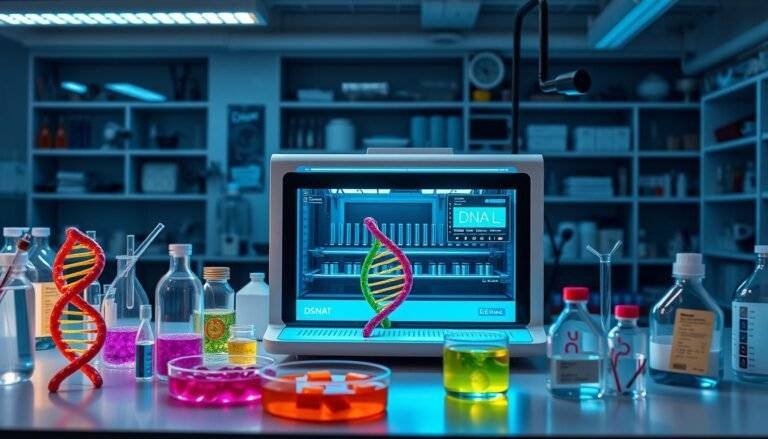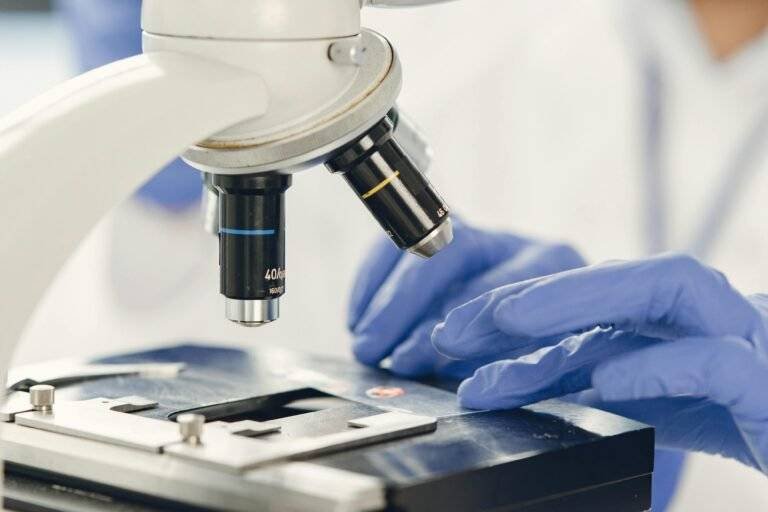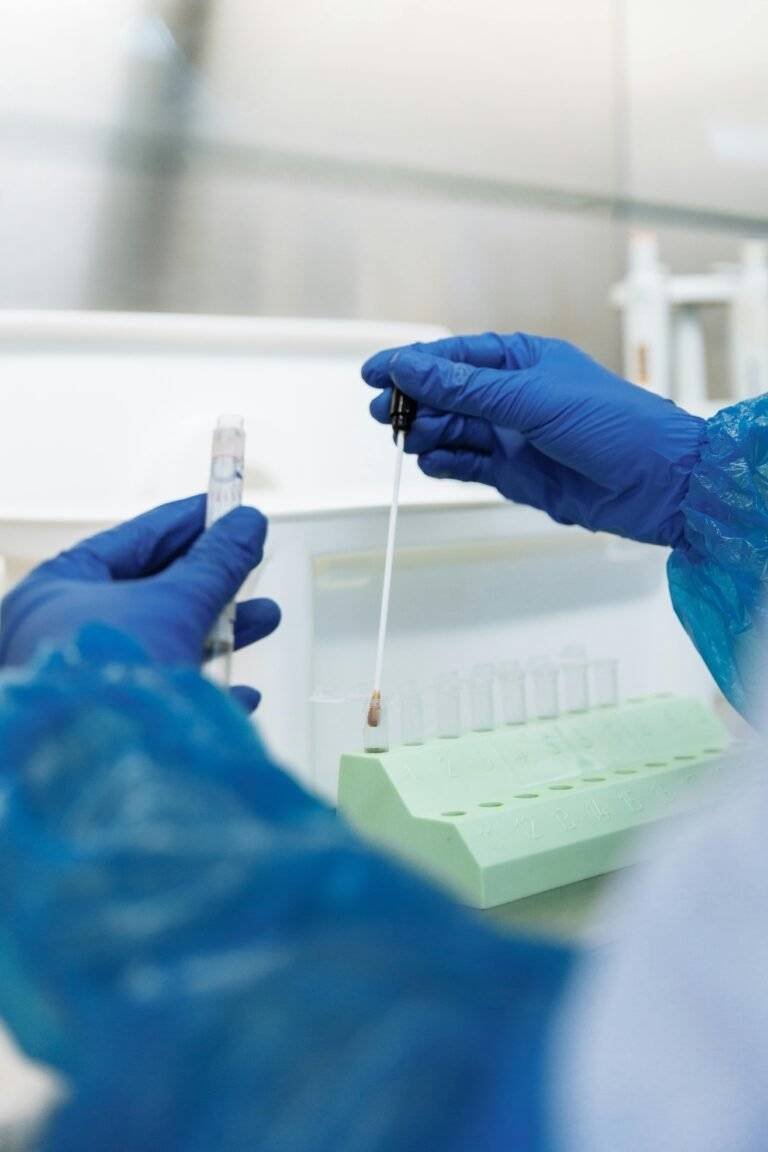Cancer Genomics: Understanding DNA’s Role in Cancer
Cancer genomics is a fast-growing field that looks into the molecular and cellular aspects of cancer. It studies DNA, RNA, and proteins to find key changes that might cause cancer. This research helps us understand how cancer grows, spreads, and becomes resistant to drugs.
The field advances thanks to new lab and computer technologies. These advancements improve data quality and lower the cost of DNA sequencing. Cancer genomics is key to precision medicine, helping doctors tailor treatments based on a patient’s tumor genetics.
Key Takeaways
- Cancer genomics is the study of genetic changes that drive cancer development and progression.
- Advancements in DNA sequencing and computational technologies have accelerated cancer genomics research.
- Understanding the cancer genome is essential for developing personalized treatment approaches.
- Genetic testing can help identify inherited cancer risk factors and guide targeted therapies.
- Cancer genomics research has led to the discovery of new cancer-driving genes and targeted cancer drugs.
What is Cancer Genomics?
Cancer genomics studies the genetic changes that cause cancer. It’s key for understanding cancer and finding new treatments. This field looks at the genetic changes in tumor cells, unlike general genomics which looks at the whole human genome.
Definition and Importance
Cancer genomics analyzes the genetic makeup of cancer cells. It helps find the specific gene mutations and pathways in cancer. By knowing cancer genetics, doctors can better diagnose and treat cancer. This leads to more personalized care for patients.
How It Differs from Traditional Genomics
Traditional genomics looks at the whole human genome. Cancer genomics focuses on tumor cell genetics. This genomic profiling helps classify cancers into subtypes, like different types of breast cancer. Knowing these differences lets doctors tailor treatments to each patient’s cancer.
Key Terms to Know
- Oncogenes: Genes that, when mutated, can lead to uncontrolled cell growth and cancer development.
- Tumor suppressor genes: Genes that normally help regulate cell division and prevent cancer, but can become dysfunctional in cancer cells.
- DNA repair genes: Genes responsible for repairing damage to DNA. Mutations in these genes can contribute to cancer progression.
Knowing these terms is crucial for understanding cancer genetics and cancer genomics.
“Cancer genomics has revolutionized our understanding of cancer and paved the way for more personalized and effective cancer treatments.”
The Basics of DNA and Cancer
DNA is the basic unit of our cells, guiding their actions. But, genetic variants, chromosomal rearrangements, and epigenetic changes can cause cells to grow out of control, leading to cancer. It’s key to grasp these DNA changes to understand cancer’s start and growth.
Structure of DNA
DNA is made of two strands that twist together. Each strand is built from four nucleotides. The order of these nucleotides holds the genetic blueprint for cell functions. Any disruption to this order can lead to serious issues, including cancer.
How DNA Mutations Occur
DNA mutations can happen in many ways. They can be random errors during cell division, caused by harmful substances, or passed down from parents. These changes can be small, like a single DNA letter change, or big, like chromosomal rearrangements.
Types of Mutations Linked to Cancer
- Point mutations: These are single DNA nucleotide changes. They can cause abnormal proteins that help cancer grow, like the KRAS gene mutation found in about 5% of cancers.
- Chromosomal rearrangements: These are structural changes in chromosomes, like the BCR-ABL fusion in chronic myelogenous leukemia. They can also help cancer develop.
- Epigenetic changes: These are changes in how DNA is packaged and expressed. They don’t change the DNA itself but can affect gene activity and help cancer grow.
These genetic and epigenetic changes are at the heart of understanding cancer. Studying the cancer genome is vital for improving cancer research and treatment plans.
“Cancer research in the past two decades has focused on understanding cancer as a disease involving dynamic changes in the genome, revealing an association with genetic events that disrupt normal cell function.”
The Role of Genomics in Cancer Diagnosis
Genomics is key in finding genetic markers for cancer diagnosis. Biomarker testing helps spot genetic changes that cause cancer. This info lets doctors pick the best treatments and see if patients can join clinical trials.
Identifying Genetic Markers
Lung cancer patients with ROS1 gene fusion do well on crizotinib. Genetic tests also find inherited mutations that raise cancer risk. For example, BRCA1 and BRCA2 in breast and ovarian cancers.
Targeted Testing and Its Benefits
Genomic data from tumors can make treatment plans more precise. The NHS Genomic Medicine Service will make sure all cancer patients in England get this testing. This will change cancer care in the UK a lot.
“The future of cancer care will likely involve genomic or multi-omics profiling for personalized therapies.”
There are educational resources and courses to learn more about genomics in cancer care. You can explore the benefits of biomarker testing, tumor profiling, and molecular profiling.
Understanding the Cancer Genome
Cancer is a complex disease with many genetic changes. Researchers have made big strides with projects like The Cancer Genome Atlas (TCGA). This project has mapped changes in 33 cancer types, changing how we see cancer.
Uncovering Cancer Subtypes
The TCGA project found different subtypes in various cancers. For example, it found four subtypes of endometrial cancer, each with its own genetic makeup. This knowledge helps doctors tailor treatments to fit each patient’s cancer.
Harnessing Genomic Insights
Genomic data from TCGA has helped researchers understand cancer’s complex nature. They can now create targeted therapies that attack cancer cells’ weaknesses. This has led to successful treatments like Imatinib for leukemia and Trastuzumab for certain breast cancers.
As cancer genomics grows, using big data and new methods is key. Working together to share and analyze these data will speed up finding new treatments. This will help improve cancer care and patient outcomes.
“The molecular taxonomy of cancer, defined by cancer genomics research, helps classify cancers into subtypes that vary in aggressiveness and response to therapies.”
Precision Medicine and Cancer Treatment
Precision medicine is changing how we treat cancer. It uses genetic information to create treatments that fit each patient. This approach makes treatments more effective and less harmful than old methods.
How Genomics Personalizes Treatment Plans
Genomics is key to precision medicine. It shows that cancer is caused by gene changes. Doctors use this info to pick the best treatments for each patient.
This way, treatments target cancer cells better. It also helps avoid harming healthy cells.
Success Stories in Targeted Therapies
- Imatinib (Gleevec) for certain types of leukemia
- Trastuzumab (Herceptin) for HER2-positive breast cancers
- Erlotinib (Tarceva) and gefitinib (Iressa) for specific lung cancers
These therapies are less harsh than traditional treatments. They focus on cancer cells, leaving healthy cells alone. Their success encourages more research into new treatments.
| Cancer Type | Targeted Therapy | Genetic Marker |
|---|---|---|
| Chronic Myeloid Leukemia | Imatinib (Gleevec) | BCR-ABL fusion gene |
| HER2-positive Breast Cancer | Trastuzumab (Herceptin) | HER2 protein overexpression |
| Non-Small Cell Lung Cancer | Erlotinib (Tarceva), Gefitinib (Iressa) | EGFR gene mutations |
Precision medicine in cancer care is a journey. Researchers and doctors are always finding new ways to use genetic data. This leads to better treatments and more hope for patients.
Emerging Technologies in Cancer Genomics
The field of cancer genomics has seen huge leaps forward. This is thanks to new technologies like next-generation sequencing (NGS) and CRISPR gene editing.
Next-Generation Sequencing (NGS)
Next-Generation Sequencing (NGS) has changed cancer genomics. It lets us quickly and affordably look at whole cancer genomes. This helps find rare genetic changes and complex rearrangements.
NGS is key in diagnosing cancer, planning treatments, and tracking how the disease progresses.
CRISPR and Its Applications
CRISPR is a game-changer in cancer research and treatment. It’s precise and versatile, opening new ways to study genes and find mutations. Researchers are looking into using CRISPR to create targeted treatments.
The use of genomic technologies, gene editing, and sequencing advancements has greatly improved our understanding of cancer. This has led to more tailored and effective treatments. As these technologies get better, we can expect even more progress in fighting cancer.
“The cost of sequencing a genome decreased significantly from $1 million in 2007 to approximately $600 currently.”
| Emerging Technology | Advancements | Impact on Cancer Genomics |
|---|---|---|
| Next-Generation Sequencing (NGS) |
|
|
| CRISPR Gene Editing |
|
|
The Impact of Cancer Genomics on Research
Cancer genomics has greatly sped up drug development. It has found new targets for therapy and markers for drug response. It also helps us understand cancer progression better. This is key for beating treatment resistance and making better treatments.
Accelerating Drug Discovery
Discovering a few key cancer genes has led to new treatments. For example, imatinib for leukemia and trastuzumab for breast cancer. But, most cancers are too complex for just one drug to work well.
Understanding Cancer Evolution
Cancer genomics has shown us how cancer changes over time. It has found new ways cancer mutates, like chromothripsis. This helps us see how cancer grows and why it can resist treatment.
“Cancer is a complex disease that involves interactions affecting the genome, epigenome, transcriptome, and proteome of cells.”
Next-generation sequencing (NGS) is key in this field. It helps find small changes in cells that can lead to cancer. NGS supports many types of research, including DNA, RNA, and proteins.
Ethical Considerations in Cancer Genomics
The field of cancer genomics raises many ethical concerns. Protecting genetic privacy and patient rights is key. This is because genomic data is very sensitive and could be misused or lead to discrimination.
Privacy Concerns with Genetic Data
One big issue is the privacy of genetic data. People getting genetic tests for cancer risk or treatment need to know their data is safe. Laws like the Genetic Information Nondiscrimination Act (GINA) and the Health Insurance Portability and Accountability Act (HIPAA) help. But, we must always watch to keep data safe.
Informed Consent and Patient Rights
The idea of informed consent is very important in ethical genomics. Patients need to know what genetic testing means before agreeing. Doctors must make sure patients understand the risks and benefits and respect their rights.
| Ethical Consideration | Key Factors |
|---|---|
| Genetic Privacy |
|
| Informed Consent |
|
As cancer genomics grows, we must focus on ethical issues. Healthcare providers, researchers, and policymakers need to put patients first. By doing this, we can make personalized cancer care work while keeping everyone safe.
Future Directions in Cancer Genomics
The field of cancer genomics is growing fast. New methods like liquid biopsies are being explored for early cancer detection. By combining genomic data with other technologies, we can better understand cancer and how it responds to treatment.
Advances on the Horizon
Liquid biopsies are a big step forward in genomic medicine. They check the blood for cancer cells and DNA, helping find cancer early. This could change how we screen for cancer, catching it before it’s too late.
New sequencing tech and big genomic datasets, like The Cancer Genome Atlas (TCGA), are helping cancer research too. They let us find rare mutations and see patterns in complex data. This leads to treatments that are more tailored to each patient.
The Role of Artificial Intelligence
Artificial intelligence (AI) is set to be a key player in cancer genomics. AI can look through lots of data, find patterns, and guess how well treatments will work. This helps doctors make better choices, leading to better care for patients.
AI working with CRISPR gene editing could lead to new cancer treatments. It can help find new drugs and make treatments that fit each patient’s needs. This could be a game-changer in fighting cancer.
As cancer genomics keeps growing, these new tools and artificial intelligence will change how we fight cancer. They promise better diagnosis, treatment, and prevention, improving lives and outcomes for patients.
Resources for Further Learning
For those looking to learn more about cancer genomics, many resources are available. Journals like Nature Reviews Cancer and Cancer Cell share the latest research. Online platforms like Coursera and edX offer free courses on cancer biology and genomics.
Professional groups like the American Association for Cancer Research (AACR) host webinars and educational materials. The National Cancer Institute’s website is also a great resource. It provides detailed information on cancer genomics research and its uses in medicine. By using these resources, you can keep up with the latest in cancer genomics education, scientific literature, and professional development.
Recommended Books and Journals
Staying current with cancer genomics research is key. Journals like Nature Reviews Cancer, Cancer Cell, and Clinical Cancer Research are highly recommended. Books like “Computational Analysis of Cancer Genome Sequencing Data” and “A Landscape of Pharmacogenomic Interactions in Cancer” offer deeper insights.
Online Courses and Webinars
There are also many online learning options in cancer genomics. Platforms like Coursera and edX offer free courses on various topics. Professional groups, such as the AACR, provide webinars by experts on different subjects. These online resources make it easy to learn and stay updated in this fast-changing field.
FAQ
What is cancer genomics?
Cancer genomics studies the genetic changes that cause cancer. It helps us understand cancer at a molecular level. This knowledge is key to creating targeted treatments.
How does cancer genomics differ from traditional genomics?
Cancer genomics focuses on the genetic changes in tumor cells. It looks at oncogenes, tumor suppressor genes, and DNA repair genes. This is different from traditional genomics.
What role does DNA play in cancer development?
DNA is like a blueprint for cells. Mutations in DNA can cause cancer. These mutations can happen by chance, from harmful substances, or inherited.
How does cancer genomics impact cancer diagnosis?
Genomics is key in diagnosing cancer. It helps find genetic markers and test for specific genes. This information helps doctors choose the best treatments and check if a patient can join clinical trials.
What is the Cancer Genome Atlas?
The Cancer Genome Atlas is a big project. It maps the genetic changes in different cancers. This helps find unique cancer subtypes with specific molecular profiles.
How does precision medicine use cancer genomics?
Precision medicine uses genetic info to tailor treatments. It leads to targeted therapies that fight cancer cells directly. This approach is more effective than traditional treatments.
What are some emerging technologies in cancer genomics?
Next-Generation Sequencing (NGS) has changed cancer genomics. CRISPR gene editing is also being explored for cancer research and treatment.
How has cancer genomics impacted research and drug discovery?
Cancer genomics has sped up drug discovery. It has found new targets and biomarkers for therapy. It also helps us understand how cancer evolves and why treatments fail.
What are some ethical considerations in cancer genomics?
Using genetic info in cancer raises ethical questions. Privacy and informed consent are big concerns. These issues need careful consideration.
What are the future directions in cancer genomics?
Future advances include better tumor profiling and liquid biopsies for early detection. Genomic data will be combined with other -omics technologies. Artificial Intelligence will play a big role in these advancements.






